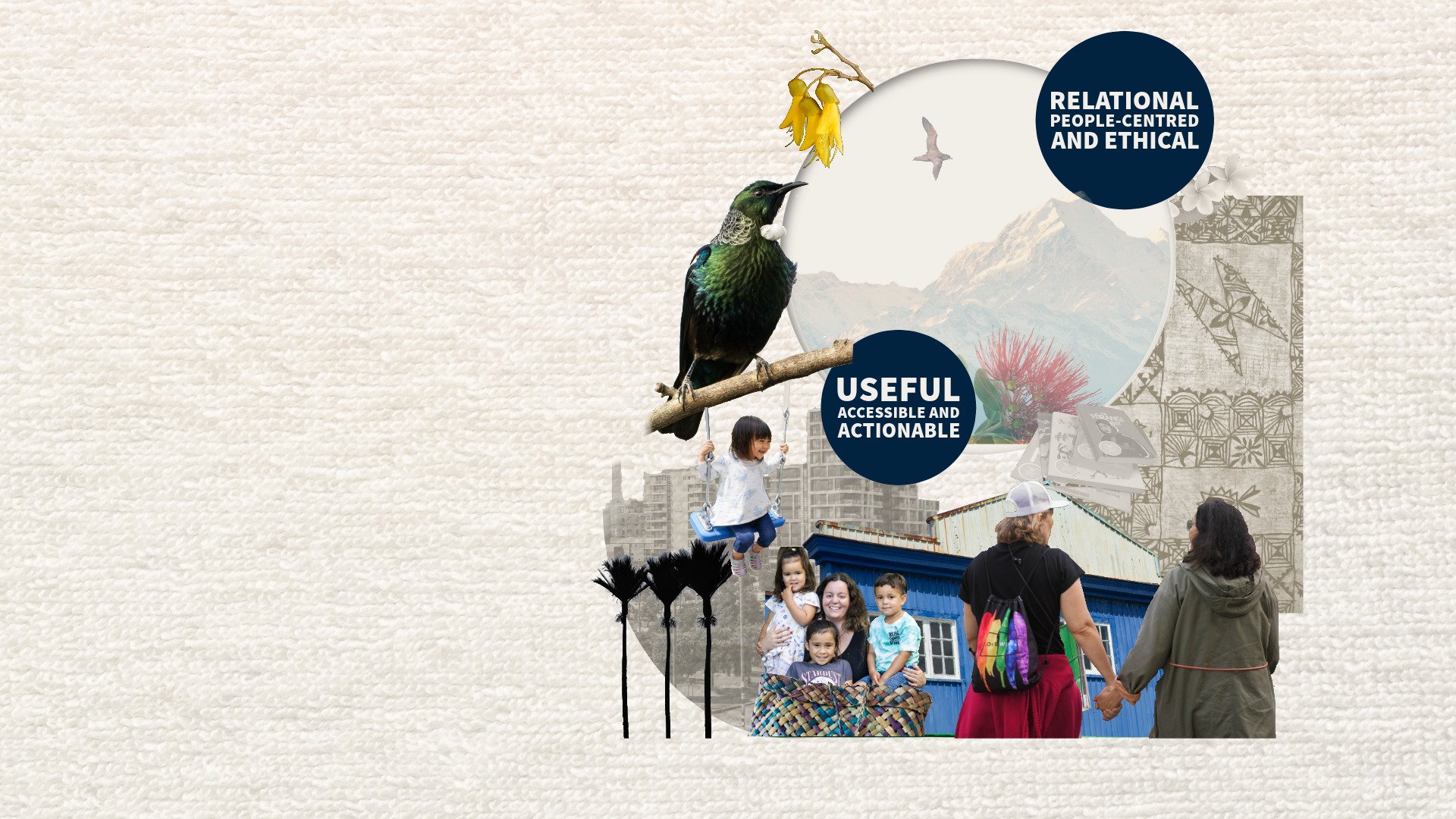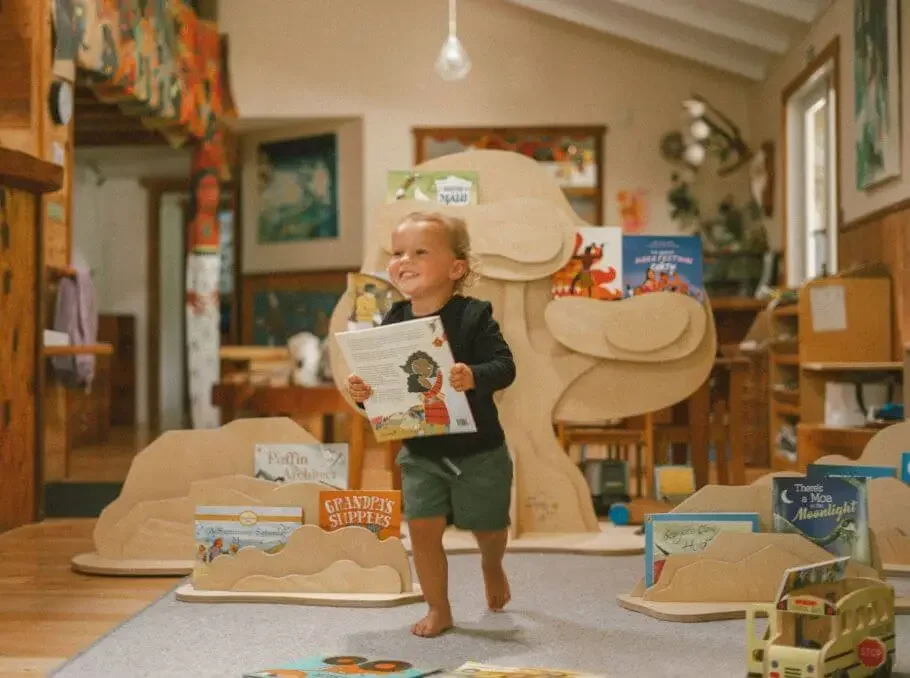
Point
Point partners with changemakers who are redesigning the system to make the biggest difference for community and whānau. We use research and evaluation to expose the messiness and uncertainty of systems change work and shine a light on potential and possibilities.
We know that creating change isn’t easy, but it is possible.
What we’re up to at the moment…
Te Huringa ō te Ao Whānau Voices Project is a shift in how we listen, how we design, and how we honour whānau voices. The research is led by Point and guided by a Kaitiaki Steering Group. It uses a kaupapa Māori-informed, trauma-aware approach to uplift tāne, whānau, and community voice - exploring aspirations, service needs, and opportunities for culturally grounded, whānau-centred change on Waiheke Island
Since 2014, Point & Associates has supported TYMS to grow its impact. In 2025, we are helping embed evaluation and reflective practice into their FASD initiative - turning their inspirational mahi into powerful learning and insight.
Since 2019, Point & Associates has supported the Champions Initiative as its evaluation partner co-designing a multi-year strategy, leading Social Return on Investment studies, and helping shape a model that’s as impactful as it is inspiring.
Y-North is redefining how impact is measured across its services, shifting from output tracking to outcome-driven insights that reflect real change in the lives of its members. Through a collaborative, light-touch approach grounded in Vision 2030, the Y is building tools that empower staff, engage communities, and make social impact visible and actionable.
Eighteen months into a shift from event-based funding to grassroots activation, the Devonport-Takapuna Local Board is reviewing how well its community development model is fostering local leadership, inclusion, and connection.
Youth voice groups play a vital role in shaping local decision-making and civic engagement. This project helps ensure that their contributions are recognised, supported, and amplified - so that rangatahi across Tāmaki Makaurau can continue to lead, influence, and thrive.
Annalise Myers is conducting a series of in-depth interviews with programme participants who work with LEAD, an organisation which supports conservation and climate change organisations across Aotearoa through tailored capacity-building initiatives.
Toxic stress affects too many tamariki - but even removing one stressor can make a big difference. In Whanganui, the Growing Collective Wellbeing Project is helping whānau build resilience, together.
The Mana Whānau evaluation is capturing how intensive, in-home parenting support is helping keep tamariki safely with their whānau. Through hui, interviews, and shared learning, the process is surfacing what works - and what matters most.
The Auckland Writers Festival’s Hōtaka Kura programme was evaluated to understand its impact on literacy, creativity, and student wellbeing. With thousands of tamariki and rangatahi attending each year, the findings show how storytelling can inspire, connect, and transform.
The Christchurch Youth Hub is co-developing a youth-friendly evaluation framework that centres rangatahi voice, trauma-informed practice, and collaborative service mapping. It’s a model for how youth services can measure what truly matters.
The Ombudsman’s nau-mai.nz website - a digital resource designed to help care-experienced children and young people understand their rights and navigate the Oranga Tamariki complaints process - was tested by care-experienced rangatahi and their trusted adults to ensure it was clear, safe, and empowering.
Nadine has been working with the Ford Foundation since June 2021 to visually represent the complex thinking behind the Foundation’s program strategies so they can be easily understood by a wide audience.
Rangatahi in Maungakiekie-Tāmaki and Puketāpapa shared what helps them thrive - and what’s missing. A new asset mapping and needs assessment highlights youth-led solutions, safe spaces, and creative pathways for change
The ECVP Programme supported ethnic communities across Aotearoa to prevent family and sexual violence. Researchers spoke with over 200 people from 17 communities in 20+ languages, using interviews, focus groups, surveys, and site visits to evaluate impact.
With 100 bookshelves delivered to ECE centres in 2024, the Little Libraries project is lifting the status of reading for tamariki and whānau. This evaluation shows more reading, more engagement, and more joy - one book at a time.
This collaborative research with WaiRangahau and GravitasOPG explored how elder abuse is understood across diverse ethnic communities in Aotearoa, highlighting cultural perspectives, systemic barriers, and opportunities to shape more responsive, culturally grounded prevention strategies.
The Hurihanga Initiative is a whānau-led response to intergenerational harm in gang-connected communities, and was evaluated using developmental, kaupapa Māori-informed methods that prioritised reflective practice, relational insight, and whānau voice.
This “Amazing Race” style community-led research project found that the Rānui community hope for a safe, family-friendly environment, more parks, events, and improved emergency preparedness
In 2024, ATWC partnered with Point & Associates to evaluate its Granger Grove residential programme - supporting mothers and tamariki through complex transitions. Through interviews, literature reviews, and thematic analysis, the project surfaced powerful insights into trauma-informed care, parenting, and systemic change. The final report will help shape a stronger, more sustainable programme for wāhine and their whānau.
A developmental evaluation to support intensive & individualised support, coaching and mentoring for kōhine toa in Tamaki Makaurau
In recounting their positive experiences with literacy & communication and maths, students, whānau and parents helped to provide some clarity around what learning looks and feels like when it’s successful, the role of whānau and parents in contributing to this success, and what indicators show it’s working.
This evaluation aims to assess the difference arts and culture programming makes in Aotearoa prisons.
This Rheumatic Fever co-design initiative was facilitated by a team who held Samoan cultural and social capital as well as extensive professional skills and expertise. Point was lucky enough to be invited along for the ride.
Point assisted the Breast Cancer Foundation New Zealand to evaluate the ABCpro digital telehealth nurse service for advanced breast cancer (ABC) patients.
Point and Associates evaluated the Writers in Schools programme drawing on feedback from students, authors and illustrators and school staff including teachers, librarians and principals.
Policies for children need to be accessible to children. One of our Point families, the DubP whanau, believes this so strongly that they redesigned the Scouts Child Safeguarding Policy, which is now being shared with every Scouts group in Aotearoa.
Annalise Myers and Kelly Maung worked with Belong Aotearoa to understand how they have positively impacted the wellbeing of refugee and migrant women and their families.
Point and partner Awa Associates describe in this evaluation how SafeMan SafeFamily helps men who have used violence become safe and understand how much of a difference SafeMan SafeFamily has made for the men, their families and whanau. A copy of the draft report is available.
The arts enable us to thrive. A vibrant arts, culture, and creative sector is a vital part of community. An investment in the arts, culture, and creativity is an investment in our wellbeing. This report helps us to better understand the extent and impact of income and housing insecurity, and the level of interest in artists’ community housing and the Universal Basic Income (UBI).
We look after the disruptors.

Our role at Point is to encourage bravery and support innovation. Our work is guided by principles that emphasise excellence, quality, generosity, accountability and responsive, reflective and relational practice. As a social business, we exist to create change. This means communities, not shareholders, profit from our work.
Our team
We think outside the proverbial boxes that say it can't be done. Our agile team of researchers, strategists, empathic interviewers, change mappers, data analysts, storytellers, social disruptors and design specialists bring experience and passion to support organisations big and small that want to put positive outcomes for all New Zealanders at the centre of social innovation.

What we do
Point actively supports people within the philanthropic, government, NGO and community spaces through all stages of their changemaking journeys. We do this by:
Change mapping: Theories of change, outcomes maps
Understanding and assessing need: community consultation, needs assessments
Data gathering and analysis: Literature scanning, data review, surveys, focus groups
Sense-making: Reflective practive, developmental evaluation, principles-based evaluation
Evidencing impact: Outcomes evaluation, creating evaluation frameworks
Communication for change: Data visualisation, visual reporting and messaging
“
July 2021
As a charity the scope of work is infinite and the budget constrained. In 2018 Cystic Fibrosis commissioned Point and Associates to carry out our first major insight survey as part of the redevelopment of our strategic direction. The results helped us refocus and realign our service delivery into four key pillars of work. We found the survey and the subsequent development of the pillars to be fundamental to ensuring we were a ‘person with CF’ centred medical charity. Our most recent survey of people with CF, family and whanau in 2021 highlights that we are doing well in what is most valued and important to Kiwis with CF and the CF community. A very professional service and product.






























